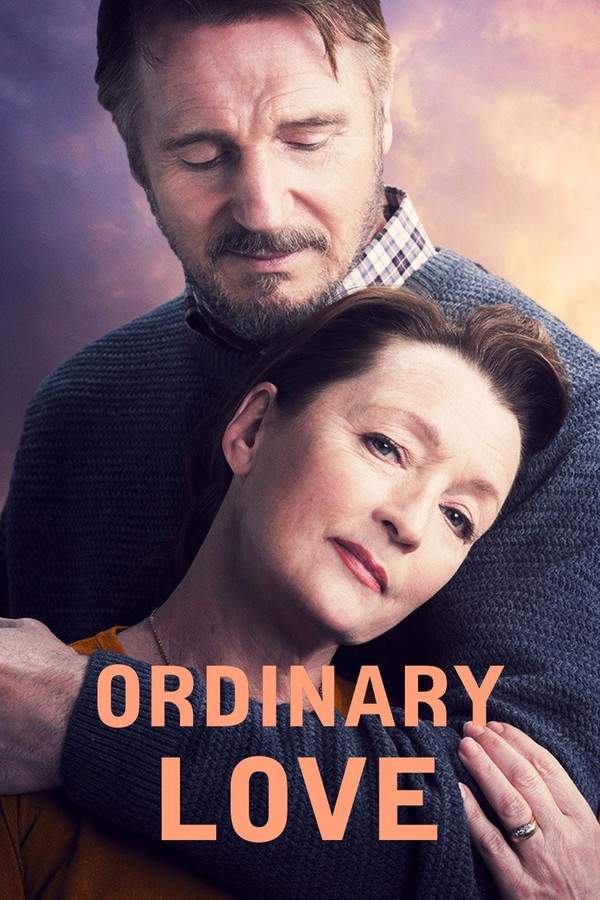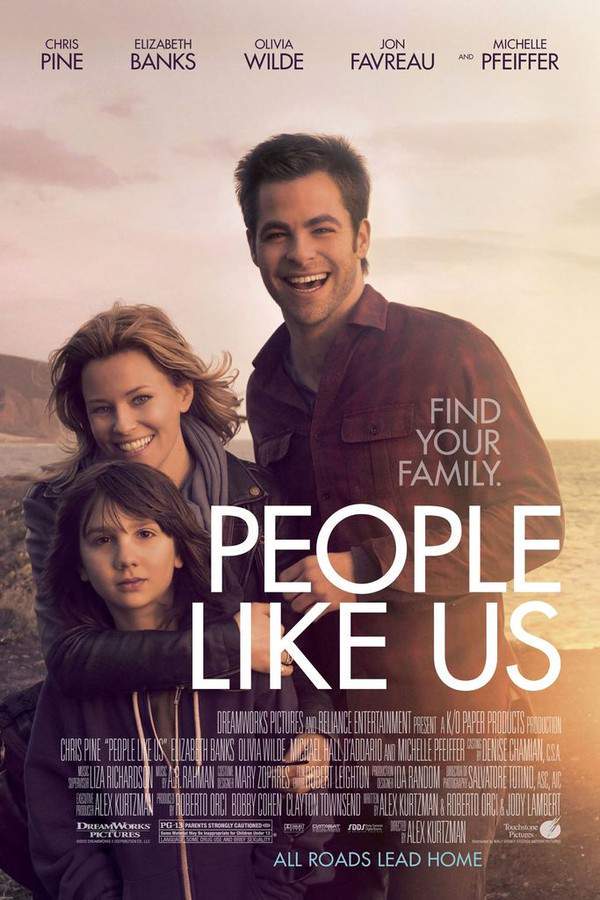
Ordinary People 1980
Made by
Paramount Pictures
Test your knowledge of Ordinary People with our quiz!
Ordinary People Plot Summary
Read the complete plot summary and ending explained for Ordinary People (1980). From turning points to emotional moments, uncover what really happened and why it matters.
In the affluent community of Lake Forest, located just outside Chicago, the Jarrett family is reeling from the profound impact of a tragedy. They are struggling to pick up the pieces after the accidental death of their eldest child, Buck, along with the emotional aftermath that led their younger son, Conrad, to attempt suicide. Now, four months removed from his hospitalization for severe emotional trauma, Conrad returns home only to feel a deep sense of disconnect from his family, yearning for peace amidst the chaos.
Seeking insight and healing, Conrad turns to Dr. Tyrone Berger, a compassionate psychiatrist who tactfully unearths the truth regarding Conrad’s haunting involvement in Buck’s sailing mishap. This journey compels Conrad to confront the lasting effects of post-traumatic stress disorder, a challenge made all the more difficult by the emotional distance between him and his parents.
Conrad’s father, Calvin Jarrett, strives to mend the growing rift between his wife, Beth, and their surviving son. Meanwhile, Beth’s insistence on preserving an image of normalcy only exacerbates the divide, as her unintentional favoritism towards Buck creates an emotional gulf that further alienates Conrad during this vulnerable time. Her desire to maintain family appearances, though stemming from good intentions, cultivates a toxic atmosphere that deepens Conrad’s sense of isolation.
As Conrad begins to find solace in his budding relationship with Jeannine, a supportive peer who rekindles his hope, he grapples with the difficulty of communicating openly with both his parents and friends. Tensions between Beth and Conrad escalate near Christmas when a candid argument erupts over a seemingly trivial request for a family photo. This emotional clash reveals deeper issues, culminating in an explosive outburst from Conrad fueled by resentment over Beth’s nonchalance regarding his struggles.
This confrontation acts as a catalyst, triggering a cascade of accusations and hurtful exchanges that leave Calvin caught in the crossfire. The family dynamics reach a boiling point during a trip to visit Beth’s brother, Ward, in Houston. Faced with Beth’s evasiveness, Calvin takes a stand, urging her to confront the unaddressed emotional undercurrents that threaten to tear their family apart. Together, they must navigate the turbulence of their circumstances, confronting their vulnerabilities and striving for open communication to heal their deeply fractured connections.
As the weight of their reality becomes increasingly unbearable, Conrad is struck by the tragic news that Karen, a fellow patient from his time in the psychiatric hospital, has passed away. This loss sends him into a spiral of reflection, leading to a poignant breakthrough in a night session with Dr. Berger. Embracing this cathartic moment, Conrad finally begins to shed the guilt and self-reproach that have overshadowed him since Buck’s death. In an act of compassion, he aims to understand his mother’s own vulnerabilities.
However, as Conrad reaches out to Beth, seeking to heal the expansive emotional divide between them, he is confronted with her chilling indifference. This rejection forces Calvin, driven by desperation, to demand an answer from Beth about her capacity for love. His queries linger heavily, challenging the very core of their relationship: Can she indeed offer love to another? The uncomfortable silence that ensues starkly highlights Beth’s emotional numbness, prompting her to hastily pack her belongings and return to Houston, leaving Calvin and Conrad to grapple with the fallout.
In the wake of this chaos, father and son must face their altered reality, one marked by uncertainty and the delicate threads that hold their family together. Amid the upheaval and turmoil, they find comfort in the unwavering bond of their paternal love—a connection that proves resilient even in life’s most turbulent times.
Ordinary People Timeline
Follow the complete movie timeline of Ordinary People (1980) with every major event in chronological order. Great for understanding complex plots and story progression.
Buck's Tragic Accident
The Jarrett family is deeply affected by the accidental death of their eldest son, Buck. This tragedy sets the stage for the emotional turmoil that unfolds within the family in the months that follow.
Conrad's Suicide Attempt
In the aftermath of Buck's death, Conrad struggles with intense grief and despair, leading him to attempt suicide. This critical moment highlights the severity of his emotional trauma and the impact of their loss on the family.
Conrad's Return Home
Conrad returns to his family home after being hospitalized for his emotional struggles. He faces a challenging environment as he feels disconnected from his parents, who are also reeling from the impact of their loss.
Seeking Help from Dr. Berger
To cope with his pain, Conrad turns to Dr. Tyrone Berger, a compassionate psychiatrist. Dr. Berger helps Conrad explore the guilt and trauma surrounding Buck's death, initiating a critical path to healing.
Conrad's Struggles with Family
Conrad finds it increasingly difficult to relate to his parents, especially with his mother, Beth, favoring the memory of Buck. This favoritism creates an emotional rift that exacerbates Conrad's feelings of isolation and sadness.
Conrad's Blossoming Relationship
Amid his struggles, Conrad begins to develop a protective friendship with Jeannine, a fellow student. Her support reignites hope within him, offering a sense of normalcy in the storm of family chaos.
Christmas Confrontation
An argument breaks out during Christmas over a family photo, revealing latent tensions between Conrad and Beth. This confrontation escalates, showcasing the underlying resentment Conrad harbors towards his mother’s emotional detachment.
Trip to Houston
The family faces further strain during a visit to Beth's brother Ward in Houston. Calvin confronts Beth, urging her to address the emotional distance that has created a fissure in their family dynamics.
Karen's Passing
Conrad learns that Karen, a fellow patient from his hospital stay, has passed away. This news plunges him back into reflection, sparking a pivotal moment of reckoning regarding his own guilt and emotional state.
Breakthrough with Dr. Berger
In a poignant session with Dr. Berger, Conrad confronts his feelings of guilt and begins to process the loss of Buck. This catharsis marks a significant step toward healing, as he strives to understand his mother’s pain.
Conrad's Rejection by Beth
Despite his efforts to reach out, Conrad is met with chilling indifference from Beth. This rejection serves as a turning point, exposing the emotional rift that has devastated their relationship.
Calvin's Confrontation
Desperate for answers, Calvin confronts Beth about her capacity to love. His probing questions create an unsettling silence that forces both of them to face the reality of their fractured relationship.
Beth Leaves for Houston
After the confrontational exchange with Calvin, Beth hastily packs her belongings and returns to Houston. This decision leaves Calvin and Conrad to navigate their family's new and uncertain dynamics.
Father and Son United
In the aftermath of Beth's departure, Calvin and Conrad find strength in their bond. Together, they confront the turmoil of their reality, realizing that their paternal love forms the foundation of their survival.
Ordinary People Characters
Explore all characters from Ordinary People (1980). Get detailed profiles with their roles, arcs, and key relationships explained.
Conrad Jarrett
Conrad is a deeply troubled young man grappling with the trauma stemming from his brother Buck's death. His character portrays the struggles of adolescence compounded by mental health issues, as he attempts to navigate his family dynamics and find his path to healing. Through therapy and connections with others, he learns to confront his pain and seek understanding.
Calvin Jarrett
Calvin is the devoted father striving to bridge the emotional chasm that separates him from his wife, Beth, and their son, Conrad. He is portrayed as a compassionate and protective figure, attempting to maintain family unity while facing the harsh realities of their emotional turmoil. His character embodies the struggle for clarity and love amidst chaos.
Beth Jarrett
Beth is the emotionally distant mother whose attempts to uphold family appearances create further strain within the household. Her character reflects a deep-seated conflict between her desire for normalcy and her inability to confront her vulnerabilities. This leads to painful rifts, highlighting the challenges of expressing love and support in difficult times.
Ordinary People Settings
Learn where and when Ordinary People (1980) takes place. Explore the film’s settings, era, and how they shape the narrative.
Time period
The story unfolds in contemporary times, capturing the complexities of family dynamics in the aftermath of trauma. Themes of grief, emotional disconnection, and the quest for healing resonate strongly in this period as characters grapple with their personal struggles amidst societal expectations.
Location
Lake Forest, Houston
Lake Forest is an affluent suburb located just outside of Chicago, characterized by its beautiful landscapes and an air of tranquility. It serves as the backdrop for the Jarrett family's emotional struggles following a tragedy. Houston, a vibrant and sprawling city in Texas, represents a pivotal escape for the family, where deeper issues are confronted and familial dynamics reach a breaking point.
Ordinary People Themes
Discover the main themes in Ordinary People (1980). Analyze the deeper meanings, emotional layers, and social commentary behind the film.
🖤
Grief
The theme of grief permeates throughout the film as the Jarrett family navigates the emotional aftermath of losing their eldest son, Buck. Each family member copes differently, reflecting the complexities of mourning and the pain of loss. The film poignantly explores how grief can isolate individuals within a family unit, emphasizing the importance of open communication in the healing process.
💔
Isolation
Isolation is a central theme in 'Ordinary People,' as Conrad feels increasingly disconnected from his family in the wake of tragedy. The emotional distance between him and his parents creates a barrier that exacerbates his struggles with PTSD. The film illustrates how lack of understanding and vulnerability can lead to feelings of profound loneliness, even in the company of loved ones.
🕊️
Healing
Healing is a crucial theme as Conrad seeks to confront his trauma and rebuild his relationships with his family. His sessions with Dr. Berger facilitate a journey towards understanding and acceptance. The film underscores the importance of confronting one's pain and the role of compassion in fostering healing within familial bonds.

Coming soon on iOS and Android
The Plot Explained Mobile App
From blockbusters to hidden gems — dive into movie stories anytime, anywhere. Save your favorites, discover plots faster, and never miss a twist again.
Sign up to be the first to know when we launch. Your email stays private — always.
Ordinary People Spoiler-Free Summary
Discover the spoiler-free summary of Ordinary People (1980). Get a concise overview without any spoilers.
In the quiet, well‑to‑do enclave of Lake Forest, just outside Chicago, the Jarrett family moves through the lingering shadows of a tragedy that has reshaped their lives. The polished exterior of their suburban world masks a fragile emotional landscape, where the expectations of perfection clash with the raw need for connection. The film’s tone is quiet and contemplative, letting the subtle currents of grief and yearning surface through everyday moments rather than overt drama.
At the heart of the story is Conrad, the younger son who returns home after months of treatment for severe emotional distress. He carries the weight of loss and a sense of dislocation that makes the familiar household feel foreign. Trying to rebuild his sense of self, Conrad seeks guidance from Dr. Tyrone Berger, a thoughtful psychiatrist whose gentle probing offers a glimpse of possible healing while also illuminating the deeper fissures within the family.
Calvin, the father, strives to hold the pieces together, navigating his own uncertainty about how best to support his wife and son. His attempts at reconciliation are tempered by the pressure to maintain the family’s outward composure. Across the kitchen table, Beth clings to an image of normalcy, hoping that preserving appearances will ease the pain, even as her own unresolved grief creates an emotional distance that deepens the chasm between her and Conrad.
Amid this delicate tableau, a budding friendship with Jeannine offers Conrad a faint thread of hope, hinting at the possibility of connection beyond the walls of his family home. The film’s understated style invites the audience to sit with the characters’ quiet struggles, feeling the tension between what is said and what remains unsaid. In a world where love is both a balm and a burden, Ordinary People explores how ordinary moments can carry extraordinary weight, setting the stage for an intimate, emotionally resonant journey.
Can’t find your movie? Request a summary here.
Movies with Similar Twists and Themes
Uncover films that echo the narrative beats, emotional arcs, or dramatic twists of the one you're exploring. These recommendations are handpicked based on story depth, thematic resonance, and spoiler-worthy moments — perfect for fans who crave more of the same intrigue.
Featured on this page

What's After the Movie?
Not sure whether to stay after the credits? Find out!
Explore Our Movie Platform
New Movie Releases (2026)
Famous Movie Actors
Top Film Production Studios
Movie Plot Summaries & Endings
Major Movie Awards & Winners
Best Concert Films & Music Documentaries
Movie Collections and Curated Lists
© 2026 What's After the Movie. All rights reserved.










